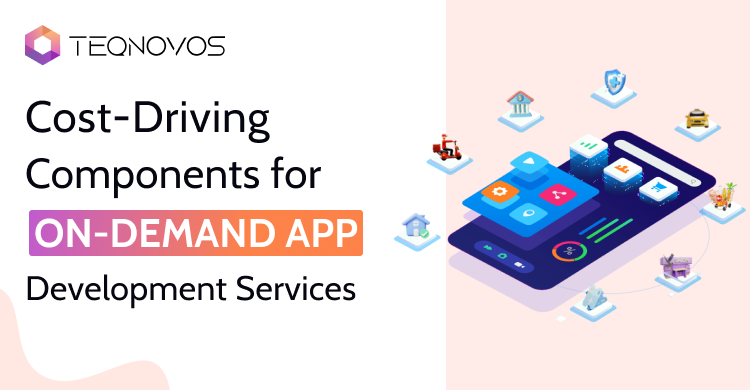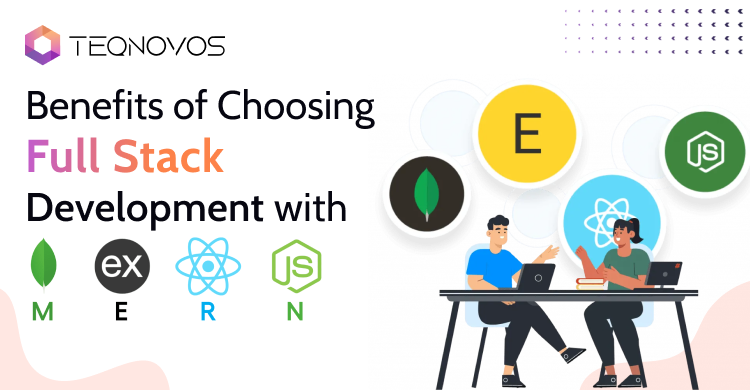Blockchain in Real Estate: Overview, Use Cases, Benefits & Implementation Challenges
Blockchain is among the most innovative technologies that took the world by storm. It has proven itself a game-changer for many industries, including real estate. Yes, you heard it right! The widespread use of blockchain in real estate can revolutionize the whole industry. Let’s discuss all the important aspects of blockchain real estate in this article.
Ever since the emergence of blockchain, numerous efforts have been made to use it to benefit different industries. Initially, blockchain emerged as a distributed ledger technology for facilitating Bitcoin transactions.
Over the years, the scope of blockchain expanded. The technology acts as a cornerstone for many other technologies and tech products, such as DeFi (decentralized finance), dApps (decentralized apps), and NFTs.
Blockchain provides a decentralized and highly secure space for storing digital data. Also, it provides an ecosystem for facilitating peer-to-peer transactions without the need for intermediaries.
But how blockchain fits in real estate?
Well, blockchain is one such technology that can completely change the way we own, buy, and sell properties. It also helps in keeping track of all the ownership records of a property and ensures no one tampers with the ownership details.
Here, we are going to talk about the use cases, benefits, and downsides of using blockchain in real estate. But before that, let’s quickly refresh our knowledge of blockchain technology.
What Exactly is Blockchain Technology?
Blockchain is a distributed ledger that stores details of the transactions occurring on a peer-to-peer network in the form of cryptocurrencies. Apart from storing transactional data, we can use it to store other information as well, such as the personal and professional details of an individual, medical records, student credentials, and much more.
In a blockchain, the information is stored in blocks and each block has a definite size. For instance, the size of each block in the Bitcoin network is 1 MB. Whenever a block runs out of space, a new block is created in the network through a process called mining. The new block created on the network is connected to the previous block using a cryptographic hash function.
Blockchain acts as a decentralized storage space that uses cryptography to secure data, and the data it stores is immutable.
Why Use Blockchain in Real Estate?
Blockchain can help overcome various challenges faced by real estate companies. By utilizing blockchain solutions, it becomes possible to eliminate issues such as lack of transparency between buyers and sellers, limited availability of ownership history of a property, and sluggish process for ownership transfer.
With blockchain, we can create decentralized systems for processing ownership transfers and keeping accurate and tamper-proof property records. Also, it’s quite easy to process payments over blockchain, which eventually terminate the need for third parties.
The incorporation of blockchain in the real estate industry is a huge plus for real-estate businesses looking to ramp up their operational efficiency.
How Can We Use Blockchain in the Real Estate Industry? (Use Cases)
Blockchain has various applications in the real estate industry. Let’s discuss the most popular use cases of blockchain in real estate.
1. Online Real Estate Marketplaces
The online real estate marketplaces available currently are controlled by a single entity. Also, they charge some fees for listing a property or viewing listed properties. So, both buyers and sellers have to rely on the entity controlling the marketplace.
With blockchain, it is possible to create decentralized marketplaces for real estate that no one controls. Anyone can sign up for the marketplace and view property listings submitted by sellers. Moreover, it becomes possible to bring down the marketplace fees and commissions.
Both sellers and buyers can completely trust a blockchain-based real estate marketplace as these prevent malicious actors from listing fake properties. Consequently, customers get access to a secure and trustworthy platform for trading real estate.
2. Tokenization and Asset Management
Tokenization refers to the process of creating digital ownership of an asset. By leveraging blockchain, we can tokenize real estate properties and buy/sell their digital ownership. There’s no need to go through the hassles of paper documentation for ownership transfer.
By tokenizing real estate, customers can buy properties online using cryptocurrencies. Also, the transactions are fully secure and there’s no involvement of third parties. All this can lead to a better user experience.
One significant advantage of tokenizing real estate assets is that you can manage all your assets quickly and easily. All the details of your assets are stored on a blockchain, and you can access the ownership details anytime and anywhere.
3. Fractional Ownership
Fractional ownership of properties becomes highly convenient with blockchain. Property owners can tokenize their properties and create fractional NFTs. Individuals interested in buying stakes in a property can purchase fractional NFTs minted against the property.
As fractional ownership allows multiple individuals to own a property, it becomes difficult to maintain an accurate record of the ownership details. However, storing the details of fractional owners on a blockchain ensures complete transparency and accurate record-keeping.
With fractional ownership, investors get the opportunity to own luxury properties that they can’t afford independently. Fractionalized NFTs make it really easy and simple to get partial ownership of a property.
4. Land and Property Registration
The traditional means of land and property ownership transfer and management are slow, prone to errors and tampering, and costly. The widespread use of paper documentation is what makes the land registration process sluggish and inefficient. Also, the registration process involves several legal procedures that are time-consuming and troublesome.
Blockchain tends to make the land and property registration process smooth sailing for both buyers and sellers. First of all, it can digitize the whole process and minimize the need for paper documentation. An owner or real estate company can store the complete ownership history of a property on a blockchain and share it directly with a prospective buyer.
Managing land and property registries with blockchain facilitates accurate tracking of ownership changes. It also eliminates the need for searching through a huge pile of documents to recover the ownership history of a property. You can get access to all the records of a property in one single place.
Additionally, a blockchain-based land registration system put an end to the role of intermediaries that charges a commission for helping buyers and sellers with the land registration process. As a result, the cost of registering land or property goes down.
5. Automation of Property Management
Blockchain-based smart contracts are known for automating tasks, and we can use them to automate various activities that are a part of property management. Whether it’s the initialization of a rent agreement or rent collection, smart contracts can automate these tasks efficiently with minimal need for human intervention.
For instance, we can create a smart contract on a blockchain that highlights all the conditions of a rent agreement. A tenant can go through the conditions and complete all the formalities, like identification and digital signatures, specified in the smart contract. Once all the predefined formalities are completed, the tenant will get a digitally signed rent agreement.
You may need to know that a smart contract is a program on a blockchain that automatically gets executed when certain conditions are met.
Smart contracts also come in handy for rent collection. We can program a smart contract that sends automatic payment reminders and rent payment requests to tenants every month. When the rent is collected, the smart contract will update the same on the blockchain. In case, a tenant does not pay the rent within the defined time window, the smart contract will terminate the rent agreement and notify the property owner about the same.
Benefits of Using Blockchain in the Real Estate Industry
The use cases of blockchain in real estate tell a lot about the advantages that real estate companies and investors can get. Nonetheless, here are some of the key benefits of employing blockchain technology.
-
No Need for Intermediaries
Usually, there is the involvement of several parties in a real estate transaction, such as an agent, lawyer, bank officer, etc. However, blockchain limits the need for intermediaries to process a real estate transaction.
With smart contracts, the need for lawyers to protect the interests of both buyers and sellers tends to cease. Also, it is possible to streamline and automate the loan sanctioning process, which also reduces the need for intermediaries. Consequently, the elimination of intermediaries will bring down transaction costs and can save a lot of time and money for both buyers and sellers.
-
Improved Liquidity
No one can deny the fact that real estate transactions take a lot of time to process. As a result, the liquidity of real estate is low. This is one of the significant reasons why many investors refrain from putting their money in the real estate market.
By tokenizing real-world properties, sellers can readily list them on online marketplaces. The ownership transfer process becomes completely digital. Moreover, the ownership transfer process that takes several days to finish will only take minutes.
Additionally, fractional ownership with NFTs allows multiple investors to buy shares in a single property. Fractional ownership even makes expensive real estate affordable to many investors, and thus we can expect better liquidity.
-
Buying and Selling Real Estate is More Secure and Transparent
Blockchain is a highly secure network that uses cryptography for data encryption. The use of a public blockchain allows buyers to access the land and property records at their will. They do not have to go through costly procedures to get access to the ownership history of a property.
Blockchain can store the exact details of a real estate transaction and no one can tamper with it. Evidently, the availability of accurate ownership history of a property will help buyers make better decisions.
Additionally, the extra security and transparency will likely attract more investors to trade real estate. This will lead to increased activity in the real estate market.
-
Better Accessibility of Properties
Blockchain is a great way to break geographical boundaries when it comes to real estate investment. Buying real estate overseas brings in a lot of challenges. You may need to go through several legal formalities, ensure your eligibility, and understand ownership rights. In all, you need to go through a lot of hassles before buying real estate in different countries.
By using blockchain-based solutions, it is possible to accomplish the identification process and legal formalities much faster than traditional methods. Also, the availability of real estate ownership in the form of tokens even makes it easier to invest in international properties. You can simply visit a blockchain-powered real estate marketplace, search for different properties, and purchase their ownership instantly with cryptocurrencies.
Roadblocks to the Implementation of Blockchain in Real Estate
While the implementation of blockchain in the real estate industry can bring several benefits, it is crucial to consider the challenges that come with it. As blockchain is a relatively new technology that is still under development, it is essential for any real estate company to be aware of the pitfalls of adopting blockchain.
In general, the incorporation of blockchain in real estate presents two types of challenges, namely legal and technical. Let’s discuss them below.
-
Legal
Currently, there are little to no legal regulations for blockchain. Due to this, companies find it difficult to figure out how they can use blockchain solutions for their businesses. Also, some customers hesitate to trade real estate over the blockchain as they are unsure if their interests are completely protected.
The lack of legal regulations prevents both real estate businesses and customers from trusting blockchain-based real estate apps.
-
Technical
As blockchain is a new technology, most people are unfamiliar with its intricacies. Due to the lack of understanding of blockchain, businesses find it difficult to use it to their advantage.
Moreover, the shortage of blockchain experts is another reason for companies to shy away from implementing blockchain. It is difficult to search the market for blockchain professionals having the right set of skills to develop solutions that meet the specific requirements of a real estate company.
Teqnovos Helps Real Estate Companies with Blockchain Implementation
Teqnovos is one of the top blockchain development companies trusted by businesses all over the world. The company has successfully delivered fully functional blockchain solutions to businesses working in different industries.
With a team of highly skilled and experienced blockchain developers, Teqnovos helps real estate companies explore the possibilities of integrating blockchain technology. The company provides exclusive assistance to clients right from the ideation phase to the deployment phase of the blockchain development process.
Following are some of the key services offered by Teqnovos:
- Blockchain Consultation
- Smart Contract Development
- NFT Marketplace Development
- Crypto Token Development
- dApps Development
As a leading blockchain development firm, Teqnovos delivers top-quality blockchain solutions. The company exclusively utilizes agile methodologies to ensure the involvement of customers in the development process and deliver projects quickly.
Final Thoughts
The global real estate industry is huge, and it offers several opportunities for both businesses and individual investors. At the same, there are many challenges that investors face while investing in real estate.
The unification of blockchain and real estate proves revolutionary as it makes the process of trading real estate quick, easy, and secure. The use cases of blockchain that we have discussed above give a clear idea of how this technology can disrupt the real estate industry.
While the adoption of blockchain in real estate is slow, we can expect more companies to jump on the bandwagon.
As we know, the implementation of blockchain is a bit complex. However, by taking assistance from a reputed blockchain development company, it would be much easier to integrate blockchain solutions with your real estate business.
















